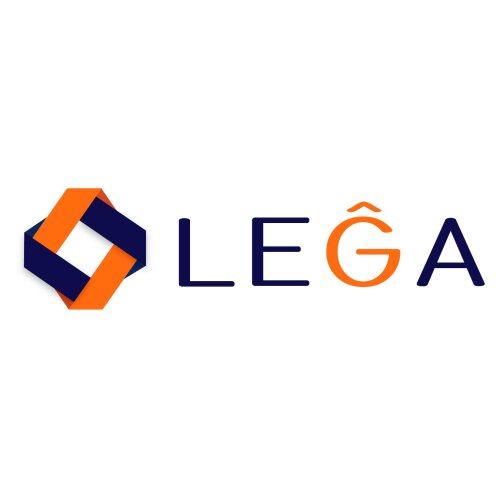Best Government Contract Lawyers in Venezuela
Share your needs with us, get contacted by law firms.
Free. Takes 2 min.
Or refine your search by selecting a city:
List of the best lawyers in Venezuela
About Government Contract Law in Venezuela
Government contract law in Venezuela governs the agreements between the Venezuelan government and private or public entities for services, works, or supply of goods. These contracts, known as "Contratos Administrativos," are subject to specific regulations and procedures aimed at ensuring transparency, adherence to public interest, and the efficient allocation of resources. The legal framework is primarily rooted in the Venezuelan Constitution and various statutory laws, including the Public Procurement Law ("Ley de Contrataciones Públicas"), which outlines the principles and procedures for public procurement activities.
Why You May Need a Lawyer
Engaging in government contracts in Venezuela can be complex due to stringent regulatory requirements and procedures. Here are some common situations where legal assistance might be necessary:
- Navigating the bidding process: An attorney can help ensure compliance with all legal requirements during the bidding stage.
- Contract negotiation and drafting: Legal guidance is crucial to interpret terms and conditions that align with Venezuelan laws.
- Dispute resolution: Lawyers can assist in resolving conflicts that may arise during the execution of the contract.
- Compliance and regulatory advice: Ensuring that your operations comply with local laws and regulations is vital for avoiding penalties.
- Adapting to legislative changes: Lawyers can keep you informed about any legal changes affecting government contracts.
Local Laws Overview
The key legal documents governing government contracts in Venezuela include:
- Public Procurement Law ("Ley de Contrataciones Públicas"): This law sets forth rules for the procurement processes, ensuring fair competition, transparency, and accountability.
- Venezuelan Constitution: It establishes principles such as legality, efficiency, transparency, and equality, which underlie public administration and governance.
- Administrative Procedures Law ("Ley Orgánica de Procedimientos Administrativos"): It details procedures for administrative acts and includes due process considerations.
Government contracts must comply with these and other relevant laws, leading to complex legal interpretations that can require expert legal advice.
Frequently Asked Questions
What is a government contract in Venezuela?
A government contract in Venezuela is a legal agreement between a state entity and a private or public party for goods, services, or public works, governed by specific statutory laws.
How do I participate in government contracts in Venezuela?
To participate, you must comply with the Public Procurement Law's requirements, which include registration, prequalification, and meeting eligibility criteria for the bidding process.
What are the types of government contracts available?
Contracts usually fall into categories of service contracts, supply agreements, and public works, each with specific legal and procedural frameworks.
Can foreign companies participate in government contracts?
Yes, foreign companies can participate, provided they meet specific legal requirements and obtain necessary permits and registrations.
What are the common issues faced in government contracting?
Common issues include lengthy bureaucratic processes, legal compliance challenges, and potential disputes over contract execution or terms.
What is the role of SEPCOP?
SEPCOP (Servicio Nacional de Contrataciones Públicas) is the National Procurement Service that regulates and monitors public procurement to ensure compliance with the procurement laws.
Can government contracts be amended once signed?
Yes, amendments are possible but are subject to legal limitations and must not affect the original purpose or undermine public interest.
What happens if there is a dispute in a government contract?
Disputes are typically resolved through negotiation, mediation, or judicial procedures. Legal guidance is often necessary to navigate dispute resolution.
What are the penalties for non-compliance?
Penalties can include fines, disqualification from future contracts, and legal action, depending on the severity and nature of the non-compliance.
How are government contractors selected?
Contractors are selected based on a public tender process designed to ensure transparency and fair competition, evaluating criteria such as bid price, technical capability, and compliance with legal requirements.
Additional Resources
For more information or assistance, consider reaching out to the following resources:
- SEPCOP: The National Procurement Service provides guidelines and resources on public procurement.
- Ministry of Popular Power for Planning and Finance: This governmental body oversees financial regulations related to government contracting.
- Venezuelan Lawyers Bar Association: They can provide referrals for attorneys specialized in government contract law.
Next Steps
If you require legal assistance with government contracts in Venezuela, consider the following steps:
- Consult with a specialized lawyer: Look for attorneys who have specific experience in government contract law to ensure you receive expert advice.
- Gather relevant documents: Prepare all necessary documents such as registration forms, past contract records, and any communications with government entities.
- Stay informed: Keep abreast of any changes to relevant laws and guidelines that may affect your contractual obligations or opportunities.
- Engage with professional networks: Join local chambers of commerce or trade associations that provide support and resources to businesses dealing with government contracts.
Legal guidance is crucial in navigating the complexities of government contracts, ensuring compliance, and protecting your interests in Venezuela's regulatory environment.
Lawzana helps you find the best lawyers and law firms in Venezuela through a curated and pre-screened list of qualified legal professionals. Our platform offers rankings and detailed profiles of attorneys and law firms, allowing you to compare based on practice areas, including Government Contract, experience, and client feedback.
Each profile includes a description of the firm's areas of practice, client reviews, team members and partners, year of establishment, spoken languages, office locations, contact information, social media presence, and any published articles or resources. Most firms on our platform speak English and are experienced in both local and international legal matters.
Get a quote from top-rated law firms in Venezuela — quickly, securely, and without unnecessary hassle.
Disclaimer:
The information provided on this page is for general informational purposes only and does not constitute legal advice. While we strive to ensure the accuracy and relevance of the content, legal information may change over time, and interpretations of the law can vary. You should always consult with a qualified legal professional for advice specific to your situation.
We disclaim all liability for actions taken or not taken based on the content of this page. If you believe any information is incorrect or outdated, please contact us, and we will review and update it where appropriate.
Browse government contract law firms by city in Venezuela
Refine your search by selecting a city.













